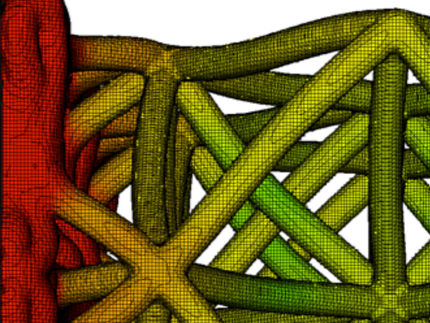Technical University of Munich, Oerlikon, GE Additive and Linde to establish additive manufacturing cluster in Bavaria
3D printing is changing the way we manufacture
The Technical University of Munich (TUM), Oerlikon, GE Additive and Linde are collaborating to create an additive manufacturing cluster. This cluster is a grouping of companies and organizations that will conduct research on and develop additive manufacturing technology from a single hub location.
The collaborative efforts will help integrate AM into the manufacturing process and enable companies to use the technology in their production. The open cluster also includes academic institutions (TUM) researching and educating on AM and regulatory authorities responsible for overseeing and regulating the use of the technology in industries. The cluster will be open to additional participants in the future.
“By having all of the players located in a single hub, we are accelerating the development and application of the technology for the various industries,” commented Prof. Dr. Michael Suess, Chairman of the Board of Directors of the Oerlikon Group. “Bavaria is the perfect place for us to house this initiative as it promotes energy and production efficiency, which supports Germany’s sustainability goals and the country’s desire to incorporate new technologies.”
“The project is an excellent example of close collaboration between industry, academia and politics to innovate and industrialize a technology like additive manufacturing,” commented Dr. Roland Fischer, CEO of the Oerlikon Group. “AM is a technology that supports our aim of providing sustainable solutions for all industries.”
Additive manufacturing technology, commonly known as 3D printing, allows for layer-by-layer printing of metal components during the manufacturing process. TUM, Oerlikon, GE Additive and Linde all play different roles in the additive manufacturing process. Additive manufacturing completely transforms the production process. It requires change in every aspect of manufacturing – supply chain, production, employee training, quality inspection, product validation and regulation.
Jason Oliver, President and CEO of GE Additive, added: “Bavaria already enjoys a stellar reputation as a global hotspot for additive technology – with a thriving ecosystem and a rich seam of talent. We’re excited to be part of this initiative from the very beginning and look forward to building on that solid foundation and driving tangible impact both for the region itself and further afield.”
“We see this opportunity to collaborate as a win for the companies and TUM, as well as for the region,” said Dr. Christian Bruch, Member of the Executive Board, CEO of Linde Engineering. “We expect the new hub will bring jobs to the area, while also delivering new technologies and capabilities to the companies located here.”
New Additive Manufacturing Institute
As one of the first initiatives enabled by the AM cluster, Oerlikon and TUM are creating a new research institute. The Additive Manufacturing Institute will focus on interdisciplinary research in raw material powders, optimized AM production and end-to-end process integration, including automation and AM digitalization. Oerlikon engineers and scientists will work hand in hand with researchers and students at various TUM faculties (mainly mechanical engineering, but also chemical engineering, the physics department and informatics) to address all aspects of AM research and production. This will include the verification and qualification of products and the development of new AM business models.
“An integrated collaboration between powerful partners from industry and science is necessary for the industrialization of additive manufacturing processes,” explains Prof. Dr. Thomas Hofmann, President of TUM. “This is the only way we will be able to overcome technological obstacles and find answers to unresolved issues in the field of standardization.”
Like the cluster, the research institute will also be open for research cooperation with academia and industry once the initial frameworks have been established. The aim is to broaden the international network and encourage an architecture of open partnership.
Other news from the department manufacturing

Get the chemical industry in your inbox
By submitting this form you agree that LUMITOS AG will send you the newsletter(s) selected above by email. Your data will not be passed on to third parties. Your data will be stored and processed in accordance with our data protection regulations. LUMITOS may contact you by email for the purpose of advertising or market and opinion surveys. You can revoke your consent at any time without giving reasons to LUMITOS AG, Ernst-Augustin-Str. 2, 12489 Berlin, Germany or by e-mail at revoke@lumitos.com with effect for the future. In addition, each email contains a link to unsubscribe from the corresponding newsletter.





























































